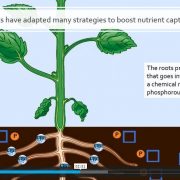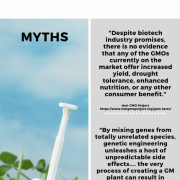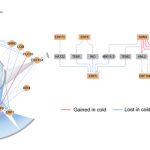Learnings from Dr. Clayton Larue, a scientist leader at Bayer Crop Science
By Xiang Li, ASPB Conviron Scholar
As part of the Conviron Scholar Program, each scholar is matched to one mentor based on their research interests. I was matched to Dr. Clayton Larue. Dr. Larue is a scientist leader at Bayer Crop Science. He has been working on discovering and developing novel herbicide tolerance traits over ten years to help farmers control weedy plants in the fields. I learned a lot from Dr. Clayton, especially about working in the industry and would like to share some of our discussions with all of you.
Making the choice, industry, or academia
Industry or academia, it is a difficult choice to make for most early-staged plant scientists. However, the good news is that you don’t have to make the choice now, and you don’t have to make any special preparations for either career choice because the preparations for both careers are very similar (more details in the next post). When I asked Dr. Larue why he chose the industry instead of academia, he told me that his passion for agriculture made him work in the industry. He wants to make a direct impact on agriculture like using biotechnology to generate new traits, and the industry is the place he chose to realize this ambition. I also talked with other scientists working in academia. Most of the answers I got are their passion for something. Finding out what your passion lies might be the answer for the choice.
Differences between industry and academia – collaboration and funding
Although you could figure out what you would like to do after graduation, it is important to know what the differences are between industry and academia, especially for industry since we all stay in the lab (academia) for a long time during our studies, and often do not have a chance to experience how it looks like in the industry. I appreciated Dr. Larue shared a lot of his experience with me.
Among them, the most interesting, exciting, and unexpected (at least for me) difference is the collaboration. In academia, collaborating with a few labs is normal. But in industry, collaborating is much more normal and in totally different scales compared to that in academia. ‘You are collaborating with different labs every day, sometimes a hundred different people over a year, and these collaborations consistently evolve.’ Dr. Larue told me. These collaborations involve cross-disciplinary fields and labs, like , governmental agencies, commercial groups, sales groups, university extension groups; in different countries with different regulations; and in different lengths of collaborations, ranging from weeks to months. This difference in collaboration hasn’t been exclusively pointed out at least in my experience. But I think this is something you can keep in mind. As a gauge to consider whether you can handle all the collaborations, or as a skill you can develop to help you better prepare an industry career.
Another interesting difference is the funding issue. Applying funds in the funding agency, like NSF (National Science Foundation) or USDA (U.S. Department of Agriculture) is competitive and difficult, but this is what we usually do in academia. Have you ever thought about how the projects get funded in the industry? Of course, there is no external funding for the project in the industry. They fund their project by themselves and form a pool of funding within the company. The challenge they face is how to distribute the funding, how much funding for different projects. To solve this problem, they have to make different project plans with the considerations of the market, especially, and how the final products will be valued in the market. Sometimes, they have to consider this question in a global view and not only in the countries where the products will be generated but also in the countries where the products will be sold or consumed. To add to that, the company also needs to invest in the project with competitiveness and avoid waste of time and energy to some uncompetitive project.
A frustrating moment in industry -public attack on science
To my surprise, the most frustrating moment Dr. Larue thought is the public attack on science. A vocal minority in the public works to dismisses science as fake or wrong and works to discredit advanced discoveries (like agriculture advancements, vaccines, climate change for a few recent examples). Although both academic and industry groups make contributions to the science community, but because the company aims to generate profits, attacking science is more often observed towards the industry. Scientists (no matter working in academia and industry) should help the public understand the values of science, what scientists do, the scientific process, and what are the potential impacts of scientific works. Dr. Larue also participated in some outreach activities (like giving presentations in his children’s school) to promote science. It is also our responsibility and what we can do to get involved in more outreach activities to promote science.
Passion is important
We also discussed some other small issues, like job securities, retirements, and so on. After our discussion, we think there are not so many differences. Different careers might have the same or similar problems or worries. To determine what career you what to choose, you still need to think hard where your passion lie, which is the most important part.








